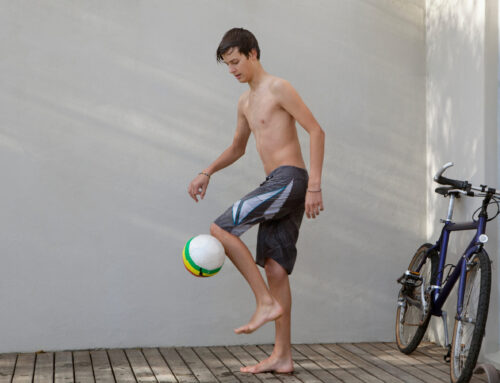In today’s digital age, where children are often glued to screens and sedentary activities, it has become increasingly important for parents to prioritize raising active children. Encouraging physical activity from an early age not only promotes healthy development but also establishes lifelong habits that contribute to overall well-being. In this blog post, we will explore effective strategies for fostering an active lifestyle and nurturing healthy habits in your child.
- Be a Role Model: Children often look up to their parents and mimic their behaviors. By adopting an active lifestyle yourself, you can lead by example and inspire your child to follow suit. Engage in regular physical activities, such as exercising, cycling, or playing outdoor games, and involve your child in these activities. Seeing you prioritize fitness will make them more likely to embrace an active lifestyle themselves.
- Create Opportunities for Active Play: Encourage your child to engage in active play by providing them with opportunities to explore and move their bodies. Set aside dedicated time for outdoor activities like biking, hiking, or playing sports. Provide age-appropriate toys, such as balls, jump ropes, or hula hoops, to spark their interest in physical play. Limit screen time and encourage imaginative play that involves physical movement, such as building obstacle courses or engaging in treasure hunts.
- Enroll in Sports and Recreational Activities: Sports and recreational activities not only promote physical fitness but also teach valuable life skills like teamwork, discipline, and goal-setting. Enroll your child in sports programs or classes that align with their interests and abilities. Let them explore a variety of activities, such as soccer, swimming, dance, martial arts, or gymnastics, to discover what they enjoy the most. This exposure will not only foster their physical development but also help them find their passion.
- Encourage Daily Exercise: Physical activity should be a part of your child’s daily routine. Aim for at least one hour of moderate to vigorous exercise each day. Encourage activities like brisk walking, jogging, or cycling. Incorporate exercise into daily tasks by taking the stairs instead of the elevator, walking to nearby destinations, or participating in household chores together. Make it enjoyable by organizing family fitness challenges or setting up a reward system for consistent exercise.
- Emphasize Fun over Competition: While organized sports can be beneficial, it’s essential to prioritize the fun and enjoyment of physical activities over winning or competition. Encourage your child to focus on personal improvement, skill development, and the joy of being active. By reducing the pressure to excel, you create a positive association with exercise, ensuring long-term engagement and motivation.
- Limit Sedentary Activities: Excessive screen time and sedentary activities can hinder your child’s physical development and overall health. Set reasonable limits on TV, video games, and computer usage. Encourage them to take regular breaks during screen time to engage in quick physical activities, such as stretching or dancing. Promote alternative leisure activities like reading, drawing, or playing board games that involve less sedentary behavior.
- Make Active Transportation Choices: Encourage your child to walk or cycle to school, if feasible, or accompany them during these journeys. If driving is necessary, park a little farther from the destination to incorporate some walking. Teach them road safety rules and ensure they have proper safety gear, such as helmets, when cycling or skating. By making active transportation choices, you promote regular physical activity and reduce reliance on sedentary modes of transportation.
Raising an active child requires a combination of intention, role modeling, and providing opportunities for physical activity. By incorporating these strategies into your parenting approach, you can instill healthy habits that will benefit your child throughout their life. Remember to prioritize fun, create a supportive environment, and adapt activities to suit their interests and abilities. By nurturing an active lifestyle, you are empowering your child to lead a healthier, happier, and more fulfilling life.




